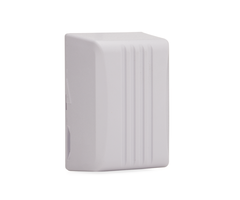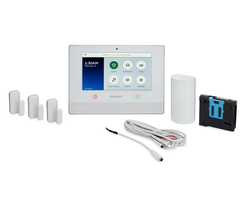UL Adjusting Guidelines for Remote Workers
Posted By Michael GorisNationally Recognized Testing Laboratory UL is currently working to revise the UL-827 Standard for Central Station Alarm Services. This is being done to better accommodate remote workers amid the pandemic. The changes will ensure that remote operators can perform their duties effectively.

Because of the ongoing COVID-19 health pandemic, many central monitoring stations are continuing to have their operators work from home. UL is making changes to their UL-827 Standard to ensure that consistent provisions and protection measures are always enforced, regardless of whether an operator is working from home or at a monitoring center.
If you are unfamiliar with UL-827, it refers to the strict standards that a central monitoring station must meet in order to receive UL certification. The official central station partner of Alarm Grid, Criticom Monitoring Services (CMS), is UL certified. CMS will be required to comply with these new provisions once they are put into effect. CMS is extremely diligent about these matters, and we would imagine that they have already begun taking steps towards complete compliance with new UL mandates.
The revisions to UL-827 are still a work in progress, and no mandate has been finalized as of yet. However, we do have eight (8) mandates that are virtually guaranteed to be put into effect. We have the essence of these 8 mandates outlined below:
- Off-site monitoring will be permitted when there is a disruption event.
- Off-site monitoring will be discontinued within (14) days of the disruption event being declared over.
- While off-site monitoring is in effect, some staff will remain at the central station to maintain and support necessary equipment, such as receivers, automation systems, emergency generators, etc.
- Remote operators will remain connected with the central station using a secure pathway that uses at least 256-bit AES encryption.
- A central station must enforce multi-factor authentication for remote operators to access its network and automation system.
- Any remote operator workstation must not be used for personal use. It will remain the property of the monitoring company.
- Remote operator workstations must be set aside in a separate area of the home to not allow any unauthorized viewing and/or distraction of remote operators.
- Remote operators and on-duty managers will maintain continuous communication while off-site monitoring is in effect.
Not every issue regarding the matter has been fully addressed. UL is still working to address matters concerning standby power, wired vs. wireless connectivity between the remote operators and the central station, and issues regarding approval from the authority having jurisdiction (AHJ). We believe that these new mandates will go into effect as soon as UL works out the details.
Although these protection measures were drafted in light of the COVID-19 health pandemic, they were also written in such a way that they can be enforced in the event of any other disruption that prevents operators from all gathering at a central station. We appreciate the insight taken by UL in that regard, as we are certainly in the midst of uncertainty.
Alarm Grid supports these measures that UL is set to introduce. We take great pride in ensuring our monitored customers that they will always receive the same level of protection and security. We understand that monitoring centers like CMS cannot safely operate with their full staff on-site during these times. The changes will help to guarantee that consistent measures are in-place, regardless of whether a trained central station operator is working from home or at the monitoring center. We applaud UL for quickly taking the initiative during these times.
As a monitoring provider, we want our customers to feel completely comfortable and confident with the central station services we offer. Providing peace of mind to end users is always one of our top priorities. If you have any questions or concerns regarding central station monitoring, please reach out to us by emailing support@alarmgrid.com. We would love to answer any questions that you might have. Remember that our business hours run from 9am to 8pm ET M-F. We look forward to hearing from you!







